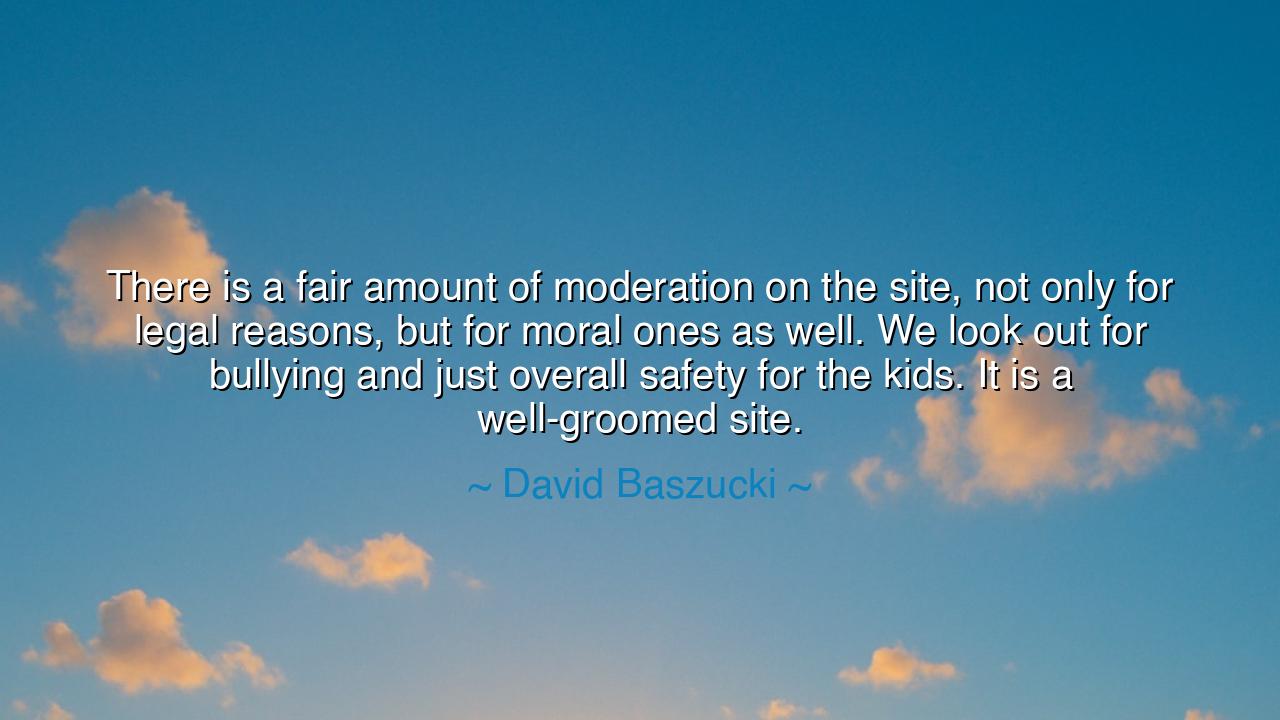
There is a fair amount of moderation on the site, not only for
There is a fair amount of moderation on the site, not only for legal reasons, but for moral ones as well. We look out for bullying and just overall safety for the kids. It is a well-groomed site.






Hear the words of David Baszucki, creator of worlds for children’s imagination, who declared: “There is a fair amount of moderation on the site, not only for legal reasons, but for moral ones as well. We look out for bullying and just overall safety for the kids. It is a well-groomed site.” These words speak not merely of rules and codes, but of guardianship, of the sacred duty to shield the young as they wander through the boundless realms of digital creation.
For in the age of the internet, children no longer play only in fields of grass or streets of stone. They gather in virtual spaces, where their laughter and friendship are woven into pixels and servers. Yet just as in the marketplaces of old, danger lurks amidst the noise—mockery, cruelty, exploitation, and deceit. Baszucki, seeing this, understood that to build such a world is not enough. It must also be well-groomed, like a garden tended daily, where weeds are pulled, where pathways are cleared, and where all may play without fear.
The legal reasons are clear: nations demand protection for the young, and laws govern the boundaries of speech and conduct. But Baszucki speaks of a higher law—the moral reasons. For the law may forbid exploitation, but it cannot command kindness. The law may punish cruelty, but it cannot cultivate a culture of safety. Only guardianship rooted in morality can do this: to watch over the innocent, not because statutes demand it, but because conscience insists upon it.
Consider the ancients who built the city walls of Athens. They did not raise stone defenses only to mark their borders, but to protect their children from marauders and foes. Or recall the monasteries of the Middle Ages, where scribes not only preserved books but safeguarded young apprentices from the chaos of war outside. So too in our day must digital creators raise walls of moderation around their communities, for the invaders are not armies, but bullies and predators, and the battle is fought not with swords, but with vigilance.
History shows the cost of neglect. In Rome’s later days, when corruption spread and the city’s guardians grew lax, the people themselves suffered most. The same is true in the digital realm: when spaces are left unguarded, cruelty multiplies, and the weak withdraw in silence. But when leaders rise with moral courage, shaping their communities with care, the vulnerable are uplifted, and creativity blossoms without fear.
What lesson, then, lies in Baszucki’s words? It is this: whether you build a digital world, a school, a home, or a nation, you bear responsibility for those who dwell within it. Safety is not an afterthought—it is the foundation of trust. And trust is the soil in which creativity, learning, and joy take root. To neglect it is to let the weeds of cruelty choke the garden. To tend it is to raise a sanctuary where children may flourish.
Therefore, in your own life, practice the same guardianship. If you are a parent, watch over the spaces your child enters. If you are a leader, build rules not only for compliance, but for compassion. If you are a friend, speak out when others are mocked, and defend those who cannot defend themselves. For the digital world, like the physical one, is shaped not only by those who create it, but by those who protect it.
Thus let the words of David Baszucki stand as a charge: build not only for glory, but for goodness. Shape spaces where the weak are sheltered, where cruelty is checked, and where joy is nurtured. For a community, like a garden, thrives only when it is well-groomed—and the tending of it is a moral duty that belongs to all.






AAdministratorAdministrator
Welcome, honored guests. Please leave a comment, we will respond soon